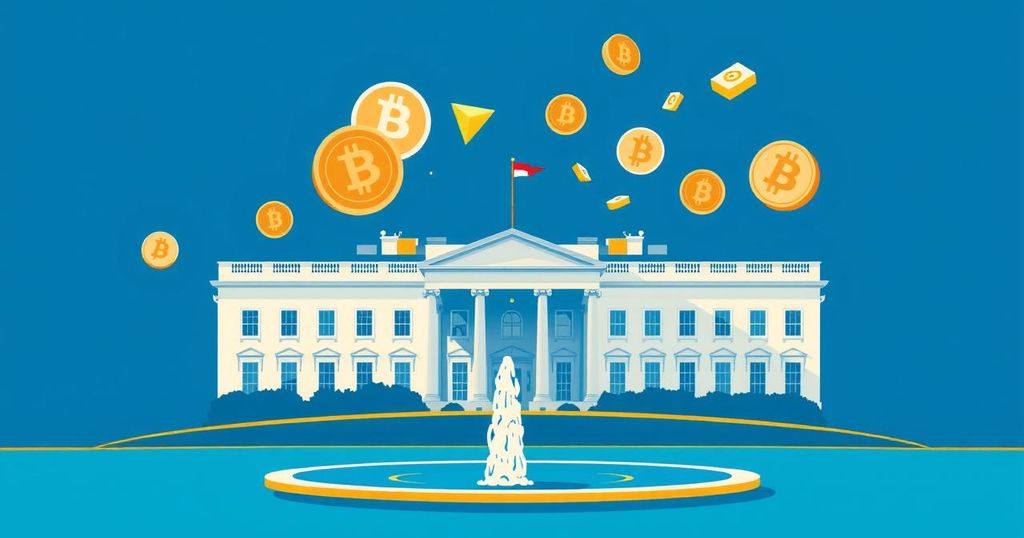UK Draft Crypto Legislation: Foreign Stablecoin Issuers Exempt from Regulation
The UK’s HM Treasury released draft crypto legislation aimed at regulating entities engaging with UK consumers while exempting foreign stablecoin issuers. Chancellor Rachel Reeves announced collaboration with the US on digital asset growth, including proposals for a Digital Securities Sandbox. The draft regulations specify seven main crypto activities that require UK regulation, while others, such as staking, have fewer restrictions. Feedback is being sought until May 2025.
Today, HM Treasury announced its draft crypto legislation in the UK, aiming to ensure that those directly engaging with UK consumers regarding crypto-assets are subject to local regulation. Interestingly, the proposed rules will exempt certain crypto entities, such as foreign stablecoin issuers, even if their stablecoin is used by UK residents. The goal here seems to maintain a balance between consumer protection and making the UK an attractive place for crypto activities.
Chancellor of the Exchequer Rachel Reeves highlighted the collaboration with the United States to foster the growth of digital assets. During her recent trip to the US, she had discussions with US Treasury Secretary Bessent about these initiatives. In addition to crypto, she expressed interest in a potential transatlantic collaboration for digital securities, inspired by SEC Commissioner Peirce’s proposal to include a Digital Securities Sandbox in the UK.
Reeves stated, “Robust rules around crypto will boost investor confidence, support the growth of Fintech, and protect people across the UK.” This reflects the UK government’s dual aim of regulatory responsibility and innovation fostering. The draft regulations so far are more high-level, as detailed rulemaking responsibilities are handed off to the Financial Conduct Authority (FCA).
Interestingly, the government decided last year against updating payment regulations to encompass stablecoins. They felt such an approach would be overly burdensome given the current innovation landscape. Nevertheless, payments through stablecoins continue to be permissible.
Within the draft legislation, seven major crypto activities have been identified, including operating a cryptoasset trading platform, dealing in cryptoassets as both principal and agent, arranging cryptoasset deals and safeguarding cryptoassets. Additionally, custodianship of crypto assets and the issuance of stablecoins from the UK are part of the regulations.
It’s noteworthy that all exchanges and dealers providing services to UK residents will have to be regulated in the UK. This includes those involved in crypto lending and borrowing. However, some foreign crypto entities can operate without UK regulation if they only interact indirectly with UK consumers through a regulated platform or dealer, as long as those businesses are not intermediaries to UK consumers.
Regulations will also require crypto custodians to be compliant, and this applies to those who manage custody of tokenized securities too. It’s interesting to mention that while digital securities usually fall under conventional securities rules, this effort aims to address the unique technical aspects associated with many cryptoassets.
One of the intriguing developments is the regulation of staking, which remains largely unregulated in many jurisdictions. A foreign staking provider that doesn’t interact directly with UK consumers might find itself exempt from needing to register under these new rules.
True decentralized finance (DeFi) activities are also excluded from regulation, though the legislation stipulates conditions for judging whether a “sufficiently controlling party” exists.
HM Treasury is inviting feedback on these draft regulations until 23 May 2025, signalling its openness to insights as it shapes the UK’s crypto regulatory landscape.




Post Comment